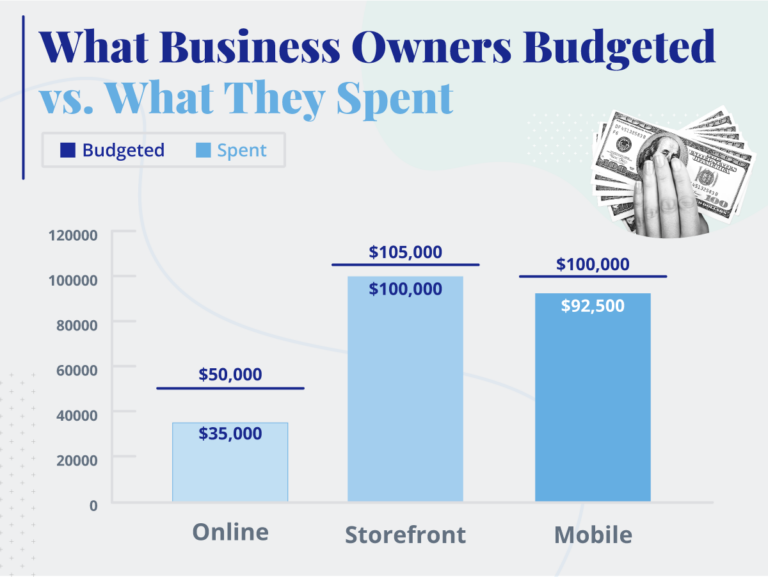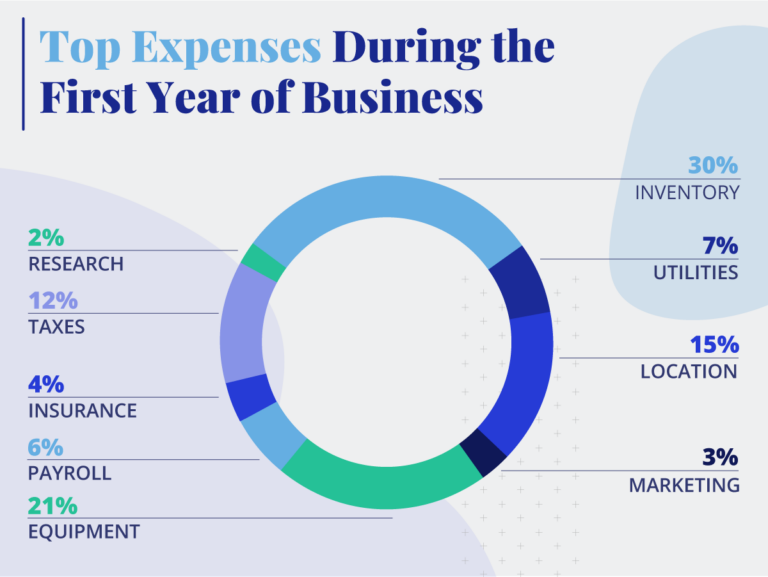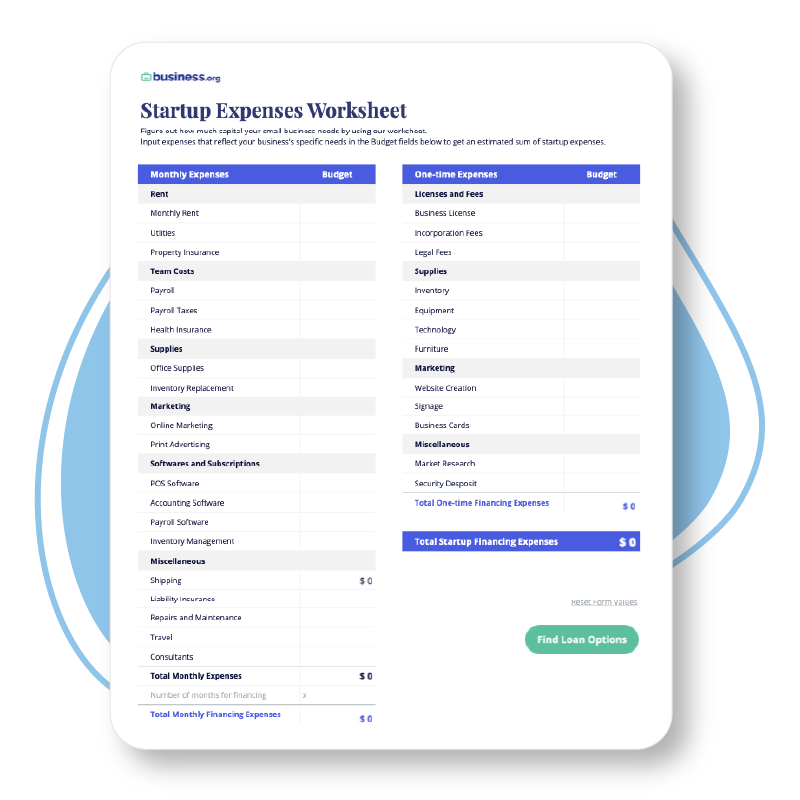We are committed to sharing unbiased reviews. Some of the links on our site are from our partners who compensate us. Read our editorial guidelines and advertising disclosure.
Small Business Startup Costs: What Business Owners Spend in their First Year
When it comes to small-business ownership, you really do have to spend money to make money—which is why small-business owners often apply for loans from traditional lenders to get their businesses off the ground. But along with a business license, most traditional lenders require proof of revenue before they’ll agree to a loan. So how are new business owners supposed to start making money without qualifying for a business loan?
Well, for better or worse, most first-time business owners have to use their own money to launch their companies. And unless you have thousands of dollars of ready cash, this means you’ll probably need to take out a personal loan or turn to crowdfunding, credit cards, or alternative lenders to acquire enough capital to start your business (and start making money).
But the amount of money you need to start a business isn’t always clear. In fact, when we polled 700 small-business owners, more than 50% said they underestimated how much they’d have to spend during their first year of business to make money. Learn more about how much money you need to start a business—and get more information on budgeting for your first year of business—in our survey data compiled below.
How much are business owners spending in their first year?
Per our survey results, online-only business owners spend an average of $35,000 during their first year of business. But you might end up spending more depending on the type of business you start:
- Mobile business owners spent an average of $92,500
- Storefront business owners spent an average of $100,000
Bear in mind that most mobile and storefront business owners also operate online, which is one key reason they spend more than online-only business owners.

By signing up I agree to the Terms of Use and Privacy Policy.
How much revenue are small-business owners generating in their first year?
For most of the small-business owners we polled, their initial investment paid off:
- Online business owners average $50,000 in revenue their first year.
- Mobile business owners average $100,000 in revenue their first year.
- Storefront business owners average $105,000 in revenue their first year.
Remember that revenue isn’t the same thing as profit: revenue is your business’s income, while profit is the amount of money you take home after paying for expenses, daily operations, employee paychecks, loan interest, and other debts.
The length of time it takes business owners to become profitable is usually a year or more—and only 15% of business owners polled started to turn a profit in under a year. 40% of business owners report turning a profit within their first or second year of business.
Which small-business expenses cost the most?

We also learned a lot about how first-time business owners spend their money in their first year of business. Here’s how first-year spending broke down for most business owners:
- 30% on inventory
- 21% on equipment
- 15% on location
- 12% on taxes
- 7% on utilities
- 6% on payroll
Other common costs included insurance, marketing, and research expenses—though, again, the amount of money spent on each type of expense depends on the type of business you start. If you own an online or mobile business, expect to spend more of your money on inventory. If you own a storefront business, you’ll probably spend more on location, such as renting, lease agreements, building repairs, and property taxes.
What are the most unexpected small-business expenses?
Inventory and equipment are fairly standard expenses, but first-time business owners also cope with unexpected expenses that can take a surprisingly hefty bite out of their budgets. For instance, 46% of business owners surveyed were surprised by the amount of money they had to spend on taxes. And 43% of our respondents were surprised by how much money they had to invest in technology, 40% were surprised by tech costs, and 39% were surprised by shipping costs.
Other costs that business owners didn’t always account for in their first-year budgets included licensing fees, insurance fees, legal fees, and patent costs.
Additional findings
Only 30% of new small-business owners we polled qualified for more traditional small-business loans. Among the remaining 70%, funding came from a variety of more personal sources:
- 39% used their personal savings to start their business.
- 33% used a personal loan.
- 34% used a personal credit card.
Our methodology
We partnered with Pollfish to conduct an anonymous survey of 700 small-business owners. Our survey’s margin of error was +/- 2% with a confidence level of 95%. After working with Pollfish to collect survey data, Business.org analyzed the results and compiled this report. To learn more about Pollfish and how it organically finds poll respondents, check out its methodology.
The takeaway
More than 30% of the business owners we polled said starting their small business was one of the hardest things they’ve ever done. Whether you consider yourself part of that percentage or not, we hope our data helps you feel a little less alone.
Finally, 51% of small-business owners polled said they wished they’d used a startup cost calculator before launching their businesses. If you want help budgeting for your first year of business, our startup cost calculator can get you started.
Disclaimer
At Business.org, our research is meant to offer general product and service recommendations. We don't guarantee that our suggestions will work best for each individual or business, so consider your unique needs when choosing products and services.




